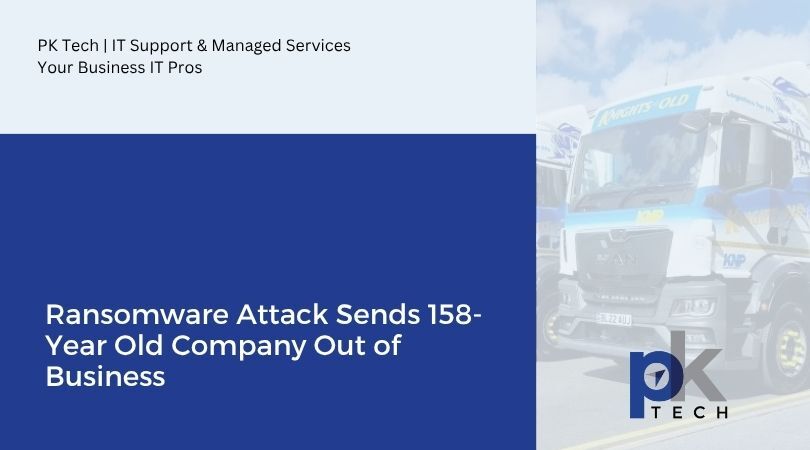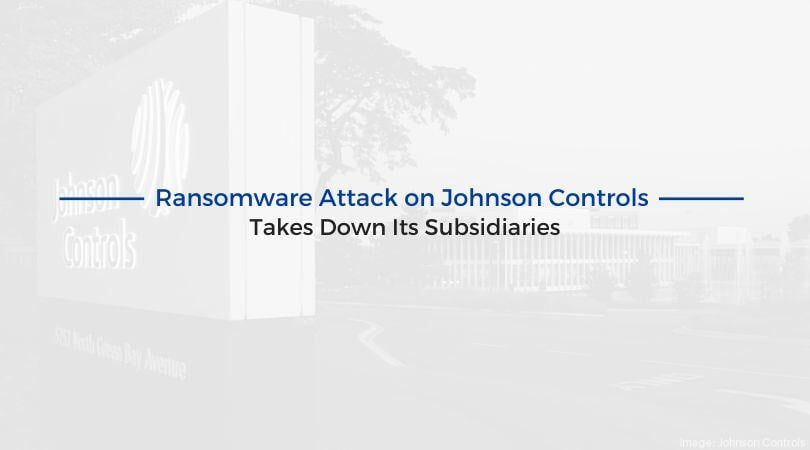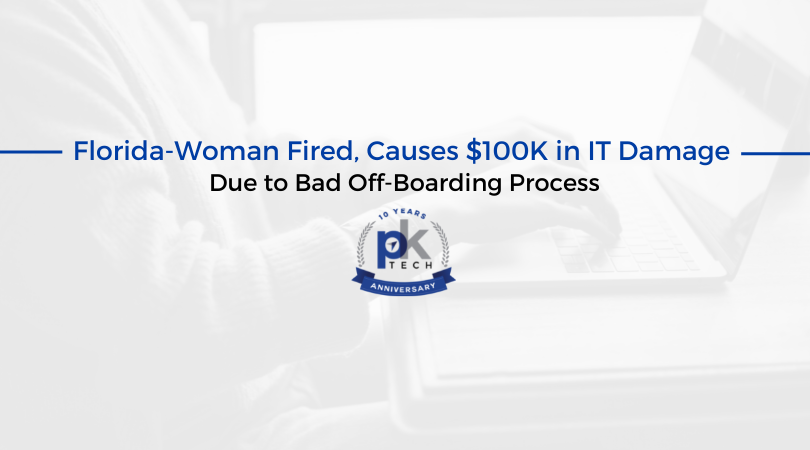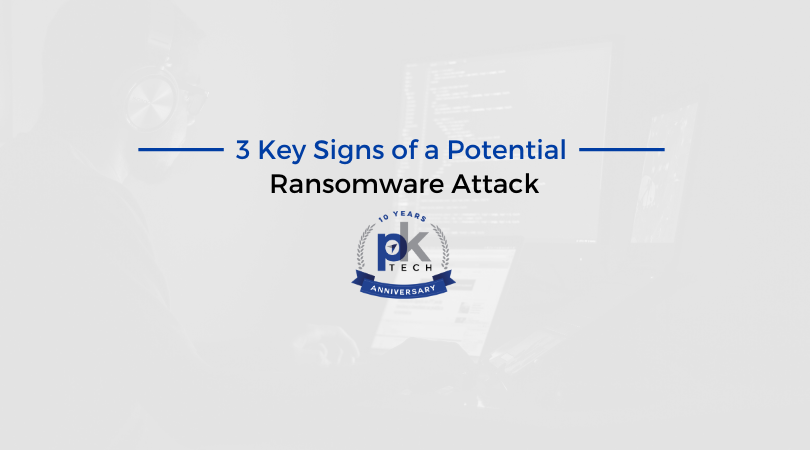Ransomware Attack on Johnson Controls Takes Down Its Subsidiaries
Building automation giant Johnson Controls was recently hit by a ransomware attack that encrypted many of its company devices (reference). Affected...
2 min read
PK Tech : Updated on August 14, 2025

A 158-year-old transportation company collapsed under the weight of a ransomware attack initiated via a single guessed password. The demise of the company, which operated hundreds of trucks and employs roughly 700 people, delivers a sobering wake-up call to businesses everywhere.
Despite having industry-standard cybersecurity protocols and insurance in place, the company was brought to its knees by the “Akira” ransomware gang. The attackers encrypted all data and issued a ransom demand of up to £5 million, a figure the company simply could not meet. With data, backups, and disaster recovery systems fully compromised, the operation shut down, wiping out 700 jobs overnight.
Even in the most unfortunate situations, there are always lessons to be learned. Let’s take a look at what your business can take away from this cybersecurity incident.
At the heart of this crisis was a remarkably unremarkable failure: a weak, easily guessed password. That single lapse granted attackers unmitigated access to the entire IT ecosystem of a respected, long‑standing business. Once inside, the attackers encrypted data across the board: systems, backups, and endpoints. This created what a cybersecurity firm described as a worst‑case scenario. Despite having cyber‑attack insurance and compliance measures, the company had no fallback, given that their backups were also compromised. Ransom demands were far beyond their capacity, leading to the total collapse of the company.
History forces us to learn. A company that has stood the test of time, with 158 years under their belt, was certainly doing some things right. The power and danger of cybercrime shows how quickly it can all come crashing down when cybersecurity isn’t given its proper seat at the table.
This was no startup with limited resources; it was a company embedded in its industry for nearly two centuries. Yet a simple security oversight erased its legacy overnight.
Cyber insurance and compliance are no substitute for a robust, multi-layered defense. If disaster recovery systems aren’t truly isolated or resilient, insurance cannot prevent system-wide destruction.
Despite growing awareness, password hygiene continues to be one of the most exploited weaknesses. It takes only one poor credential to open the floodgates.
The Akira case is one among many. Businesses large and small face escalating ransomware threats, prompting calls for mandatory reporting, independent audits, and stricter regulations.
Forward thinking is how other companies stand the test of time (and cyber attacks). Here’s what we hope you’ll learn from this company’s unfortunate turn of events.
Weak passwords remain low-hanging fruit for attackers. We help clients deploy systems requiring strong, unique passwords and multi-factor authentication, especially for remote or critical system access.
Ensure backups are immutable and air-gapped, inaccessible via the same credentials as production systems. This safeguards against encryption by ransomware if an attacker penetrates the network.
Deploy network segmentation, endpoint detection and response, and proactive threat monitoring. Our clients benefit from continuous network traffic analysis and breach simulations.
Disaster can strike even the best‑prepared. Regular tabletop exercises, live incident drills, and clear communication plans help clients respond swiftly when time is critical.
We encourage clients to engage in third-party cybersecurity audits. These are comprehensive reviews of their infrastructure, policies, and human factors. In the case of this company, defenses existed but weren’t resilient enough.
The demise of a once‑proud, century‑old company due to something as mundane as a poor password isn’t just tragic, it’s emblematic of the state of cyber resilience in 2025.
At PK Tech, we’re laser-focused on protecting our clients before such failures occur. Network safety is never static; it must evolve with the threat landscape. Don’t wait for a hacker to guess your password to learn that lesson firsthand.
Ready to chat with PK Tech? Schedule a time here.

Building automation giant Johnson Controls was recently hit by a ransomware attack that encrypted many of its company devices (reference). Affected...

It continues to be a hot topic that we’ve touched on before on our blog and social media: the idea that current and former employees can be a risk to...

Somewhere — right now — countless cybercriminals are planning ransomware attacks and have likely been planning each attack for weeks or even months.